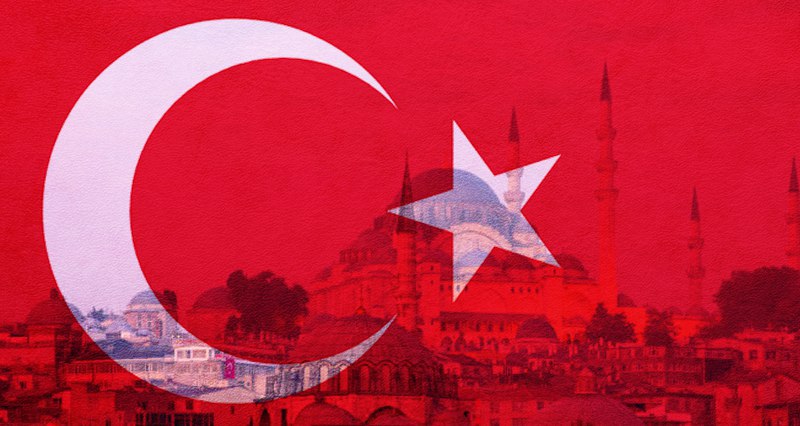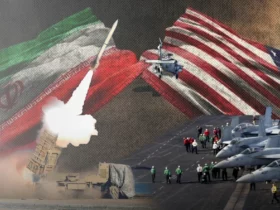*JOINT MILITARY EXERCISE OF TURKEY AND AZERBAIJAN*
*THE NEW SOCIAL MEDIA LAW*
*TURKISH PUBLIC HAVE REJECTED US LEADERSHIP*
Last week Turkey had a busy political agenda, as usual.
The joint military exercise between Turkish and Azerbaijani Armies, just after the recent Armenian aggression, the new controversial social media law and the Gallup report which showed the political view of the Turkish public about the US, were the main subjects of last week.
JOINT MILITARY EXERCISE BETWEEN TURKEY AND AZERBAIJAN
The joint military exercise between Turkish Air and Land forces and Azerbaijan was commenced on the 29th of July, as a part of the Agreement of Military Cooperation between both countries.
According to the plan, exercises that involved land forces are scheduled for Aug. 1-5 in Baku and Nakhchivan, and exercises with the participation of military aviation will be held from July 29 to Aug. 10 in Baku, Nakhchivan, Ganja, Kurdamir and Yevlakh.
The military exercise, which took place immediately after Armenia’s attacks on Azerbaijan on July 12th, was considered as a clear message to Yerevan and its supporters.
The recent rise in tensions was triggered when the Armenian army attempted to attack Azerbaijani positions with artillery fire in the direction of the northwestern Tovuz border region, but then withdrew after suffering losses following the retaliation from the Azerbaijani military.
In the latest border clashes, Azerbaijan lost 12 soldiers, including a major general and a colonel, on the other hand military reports shows that Armenia lost dozens of soldiers.
After the clashes, Azerbaijan has blamed Armenia for the provocative actions and several high-level announcements came from Turkey after the attack, and Ankara has reiterated that it stands with Baku and warned Armenia to respect Azerbaijan’s territorial integrity.
Turkish authorities condemned the illegal invasion of Nagorno-Karabakh and also “reckless and systematic attacks” of Yerevan against Azerbaijan.
Presidential Spokesperson Ibrahim Kalin reiterated Turkey’s determination to support Azerbaijan in the face of Armenian aggression near the border, but he also added that diplomatic communication channels are still open.
A week after the attack, Turkish Defense Minister Hulusi Akar, Azerbaijani Deputy Defense Minister Ramiz Tahirov, and Kerem Mustafayev, The Army Chief of the Nakhchivan Autonomous Republic, an exclave of Azerbaijan bordering Armenia, Turkey and Iran, has come together and discussed the latest situation.
The Turkish Defense Minister said that Turkey will continue to do what they have to do and “no one should doubt that” intention of Ankara.
Meanwhile, President Recep Tayyip Erdogan and his Russian counterpart Vladimir Putin held a phone call speaking of the tensions between Azerbaijan and Armenia, and the two leaders have agreed to soften the tensions through diplomatic contacts, and agreed to create a new dialogue platform.
Turkey and Azerbaijan have common historical, ethnic and cultural roots, and the relationship between Ankara and Baku is largely considered as “one nation, two states”.
Relations between Azerbaijan and Armenia have been frozen since the 1991 invasion of the Nagorno-Karabakh region by Armenia, which is still considered an Azerbaijani territory in the international community.
Tens of thousands of civilians and soldiers have been killed in the Karabakh conflict since 1991, and some 20% of Azerbaijan’s territory remains occupied to this day. International efforts to settle the conflict have stalled.
Turkey has frequently stressed that this dispute needs to be resolved within the framework of international law and keeping Azerbaijan’s sovereignty and territorial integrity.
Three United Nations Security Council resolutions and UN General Assembly resolutions refer to Nagorno-Karabakh as being part of Azerbaijan. The Parliamentary Assembly of the Council of Europe refers to the region as being occupied by Armenian forces.
NEW SOCIAL MEDIA LAW
In Turkey, the new law for social media platforms was published in the Official Gazette of Turkey and was put into force on July 30th.
The opposition parties have criticized the bill that will lead to some censorship in the country while the ruling Justice and Development Party (AKP) and its political ally the Nationalist Movement Party (MHP) have supported the bill.
The controversial law requires that social media platforms like Facebook, Twitter and Instagram appoint Turkish-based representatives to address the authorities’ concerns about content, and includes deadlines for removal of material they take exception to.
According to Hurriyet Daily News, with the new law, “companies could face fines, the blocking of advertisements or have bandwidth slashed by up to 90 percent, essentially blocking access, under the new regulations on cases such as if they fail to designate a representative, or if the content that has been found unacceptable is not removed or blocked within 24 hours.
Administrative fines for providers who fail to meet the obligations would be raised to encourage compliance. Previously, fines were between 10,000-100,000 Turkish Liras ($1,500 – $15,000), but the amount would now be between 1 million – 10 million Liras ($146,165 – $1,461,650).”
According to new law, the representative of these companies must be a Turkish citizen or they might appoint a legal entity in Turkey.
The point that opposition criticizes most is that the new legislation obliges social media networks to be stationed in Turkey and to share the user data with the government authorities if there requested.
THE US IS SHRINKING IN TURKEY
The latest survey by the Gallup Research Company, which have previously examined the US global leadership claims, had interesting results from its Turkish branch.
The median global approval rating for the US leadership across 135 countries and areas were edged up to 33% in 2019. This rating is slightly higher than the previous low under Trump, but it is still one percentage point lower than the previous low of 34% under former President George W. Bush in 2008.
In Turkey, 12% of respondents said they approved the leadership of the United States, while 73% have disapproved, and 14% said they do not have any idea or did not want to respond.
The biggest support for America with the Trump government came from the African nations.
The survey also revealed that America’s reputation continues to decrease among the European nations. Italy, Lebanon, Iraq, Sierra Leone and Zambia were the countries where support for the US leadership has fallen the most.
The countries with the highest global approval of America came from Kosovo with 82%, Albania with 67% and Poland with 59%.

















Leave a Reply